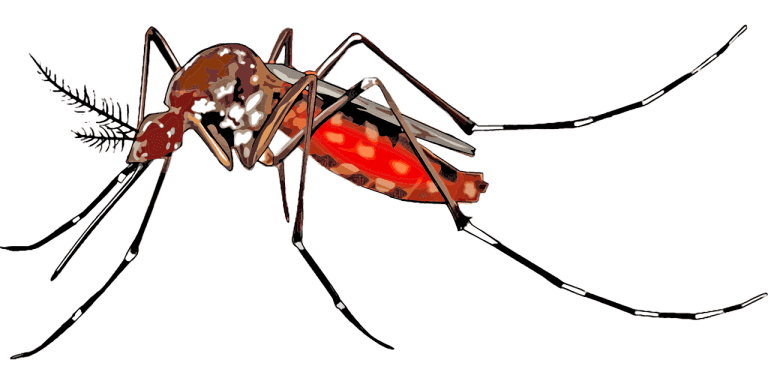
West Nile Fever
I know, the last thing we need is to get familiar with yet another infectious disease, but I think this one is important.
What is West Nile Fever? Who is at risk for the virus? What are the signs and symptoms? And most importantly, how can we prevent it?
Here you go – you’re welcome!
What is West Nile Fever?
West Nile Fever is a viral infection caused by a virus that belongs to the Falviviridea family of viruses. We have another chapter on this website about a different virus from the same family that causes Dengue Fever.
This virus was discovered in 1937 and was named after the area that it was discovered in in Uganda.
Where is West Nile Virus most common?
This viral infection used to be common everywhere around the world except for North America. However, since the world has become a global village, the virus reached North America in the beginning of the 2000s. Nowadays, the virus can be found everywhere except for Antarctica, with outbreaks occurring in defined geographic areas.
How does West Nile Virus spread from person to person?
The virus is transmitted through the bite of an infected mosquito.
Mosquitos become infected when they feed on infected birds. The infected mosquitos then spread the virus to people (or horses). Humans are the ‘dead-end host’ even though there have been reports of spread of the virus through blood and blood products, organ transplants and placentas.
What is the incubation period of the disease?
Remember that the incubation period is the time it takes from the moment of the mosquito bite to the appearance of clinical signs of the disease. In the case of West Nile Virus infection, the incubation period is 2-14 days in immunocompetent people. The incubation period can be longer in the immunosuppressed.
What happens to a person after they are infected with West Nile Virus?
In most cases, up to 80% actually – nothing. Most people who are infected are asymptomatic.
But in a small percentage of those infected, after an incubation period that ranges between 3 to 14 days, a non-specific febrile illness develops (a combination of fever, headache, abdominal pain, muscle pain, rash, and more). In an even smaller percentage of those who get infected, meningitis or infection involving the brain develops. Keep in mind that despite reports of people with severe West Nile Virus infections in the media, this is a representation of only a small fraction of those with the infection as many people with the infection do not even get tested.
Who is at higher risk of developing severe infection?
Older individuals, particularly 50 years and older and people who are immunosuppressed (either congenital or acquired immune suppression). Luckily, children who are healthy and have no prior medical history are usually asymptomatic.
How is West Nile Virus infection diagnosed?
The diagnosis is determined with the help of blood tests, urine tests and a test performed on cerebrospinal fluid samples, in those who underwent lumbar puncture due to a concern for meningitis.
Is there a treatment for the infection?
Unfortunately, there isn’t. The only available treatment is supportive treatment and despite trials of different therapies (steroids, antibodies, plasma from infected people), there is no specific treatment against the infection.
Can the infection be prevented?
Yes, by avoiding mosquito bites.
On a personal level – with the use of nets and mosquito repellants. Wear long sleeved shirts and pants and avoid spending time outdoors in the evenings. Obviously, even if you do all of these things you might still get mosquito bites. You can also actively search for any still water containers indoors or surrounding the house (keep in mind that even a small amount of water is sufficient for mosquitos to lay eggs and replicate), and to empty out the bottom of plant containers once a week, etc.
On a public level – treating still water containers and reducing the number of mosquitos using insecticides.
What should I do if I got bit by a mosquito?
There is nothing you can do once you have been bit. I think it’s worth reading the post about bites on this website regardless, you can find the link here.
In summary, this is not a common infection, but it can lead to an unpleasant illness, especially for elders or those with underlying medial conditions. It can be prevented by avoiding mosquito bites.
Good luck!
For comments and questions, please register
